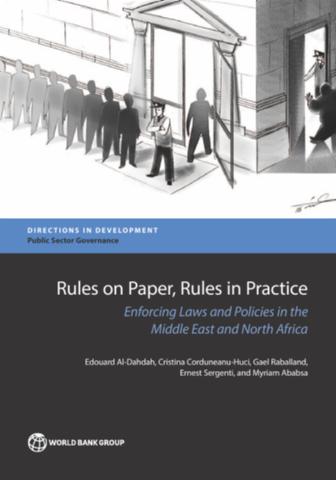The World Bank is a vital source of financial and technical assistance to developing countries around the world. We are not a bank in the ordinary sense but a unique partnership to reduce poverty and support development. The World Bank Group has two ambitious goals: End extreme poverty within a generation and boost shared prosperity.
- To end extreme poverty, the Bank's goal is to decrease the percentage of people living on less than $1.25 a day to no more than 3% by 2030.
- To promote shared prosperity, the goal is to promote income growth of the bottom 40% of the population in each country.
The World Bank Group comprises five institutions managed by their member countries.
The World Bank Group and Land: Working to protect the rights of existing land users and to help secure benefits for smallholder farmers
The World Bank (IBRD and IDA) interacts primarily with governments to increase agricultural productivity, strengthen land tenure policies and improve land governance. More than 90% of the World Bank’s agriculture portfolio focuses on the productivity and access to markets by small holder farmers. Ten percent of our projects focus on the governance of land tenure.
Similarly, investments by the International Finance Corporation (IFC), the World Bank Group’s private sector arm, including those in larger scale enterprises, overwhelmingly support smallholder farmers through improved access to finance, inputs and markets, and as direct suppliers. IFC invests in environmentally and socially sustainable private enterprises in all parts of the value chain (inputs such as irrigation and fertilizers, primary production, processing, transport and storage, traders, and risk management facilities including weather/crop insurance, warehouse financing, etc
For more information, visit the World Bank Group and land and food security (https://www.worldbank.org/en/topic/agriculture/brief/land-and-food-security1
Resources
Displaying 256 - 260 of 4906Rules on Paper, Rules in Practice
The primary focus of this book is on a specific outcome of the rule of law: the practical enforcement of laws and policies, and the determinants of this enforcement, or lack thereof. Are there significant and persistent differences in implementation across countries? Why are some laws and policies more systematically enforced than others? Are “good” laws likely to be enacted, and if not, what stands in the way? We answer these questions using a theoretical framework and detailed empirical data and illustrate with case studies from Morocco, Tunisia and Jordan.
Strengthening Competitiveness In Bangladesh—Thematic Assessment
This is volume 2 of a three-volume publication on Bangladesh’s trade prospects. Bangladesh’s ambition is to build on its very solid growth and poverty reduction achievements, and accelerate growth to become a middle income country by 2021, and share prosperity more widely amongst its citizens. This includes one of its greatest development challenges: to provide gainful employment to the over 2 million people that will join the labor force each year over the next decade. Moreover, only 54.1 million of its 94 million working age people are employed.
Kingdom of Lesotho
Lesotho is one of the poorest countries
in Southern Africa, and has one of the highest income
inequality in the world. Home to about 2 million people,
Lesotho is surrounded by South Africa, the second largest
and most industrialized economy in Africa. Lesotho generates
income mainly by exporting textiles, water, and diamonds,
and is a member of the Southern African Customs Union
(SACU), the Southern African Development Community (SADC),
Country Partnership Framework for Hashemite Kingdom of Jordan for the Period FY17-FY22
The Government of Jordan, the World Bank
Group (WBG), and the international community are working
towards a paradigm shift in their collective response to the
refugee crisis - a holistic approach which stresses the
continuum between the humanitarian response and the
country’s development agenda. In parallel, Jordan’s implicit
social contract by which the state provided citizens with
jobs and heavily subsidized public services is evolving.
Energy Sector Experience of Output-Based Aid
Sustainable development goals (SDGs)
placed access to basic services at the center of
international development in 2016-2030. Out of 17 goals,
five address the access of poor people to basic services: to
health in SDG3, to education in SDG4, and SDG5, to water and
sanitation in SDG6, to energy in SDG7, and to urban services
in SDG11. The mutually reinforcing relationship between
electricity access, economic development, and poverty








